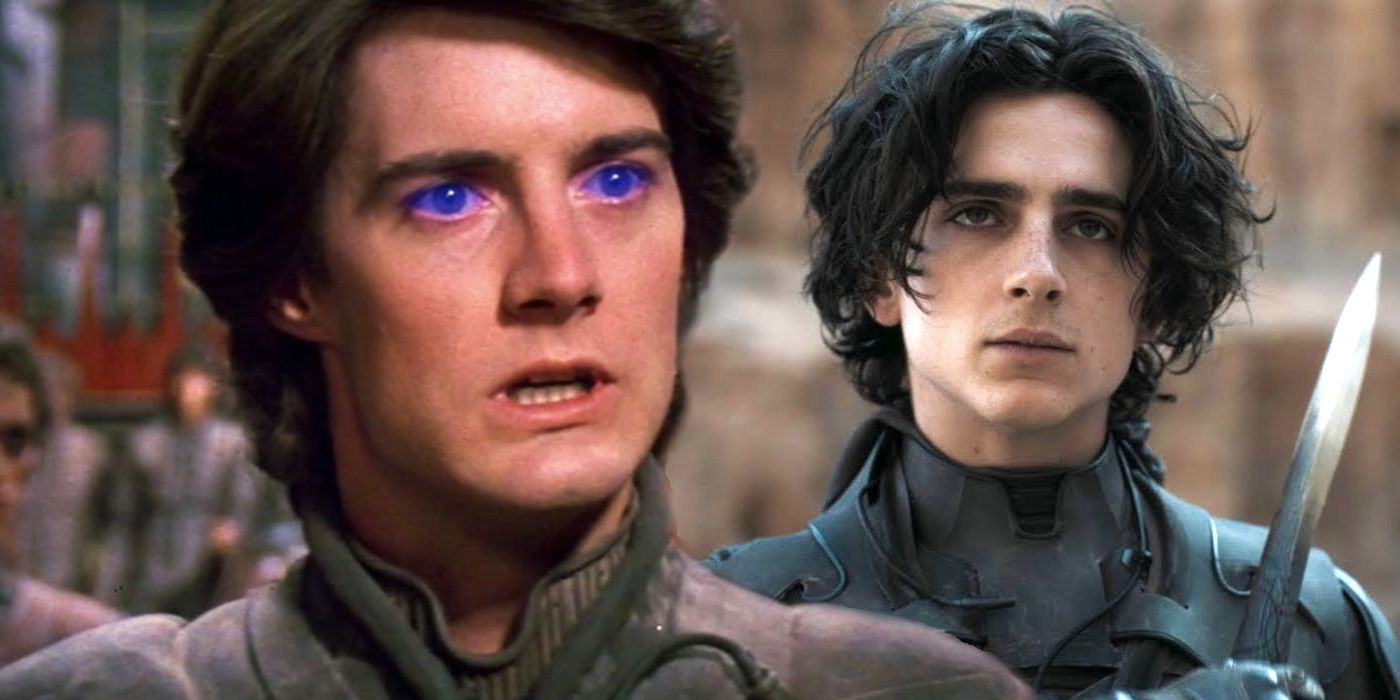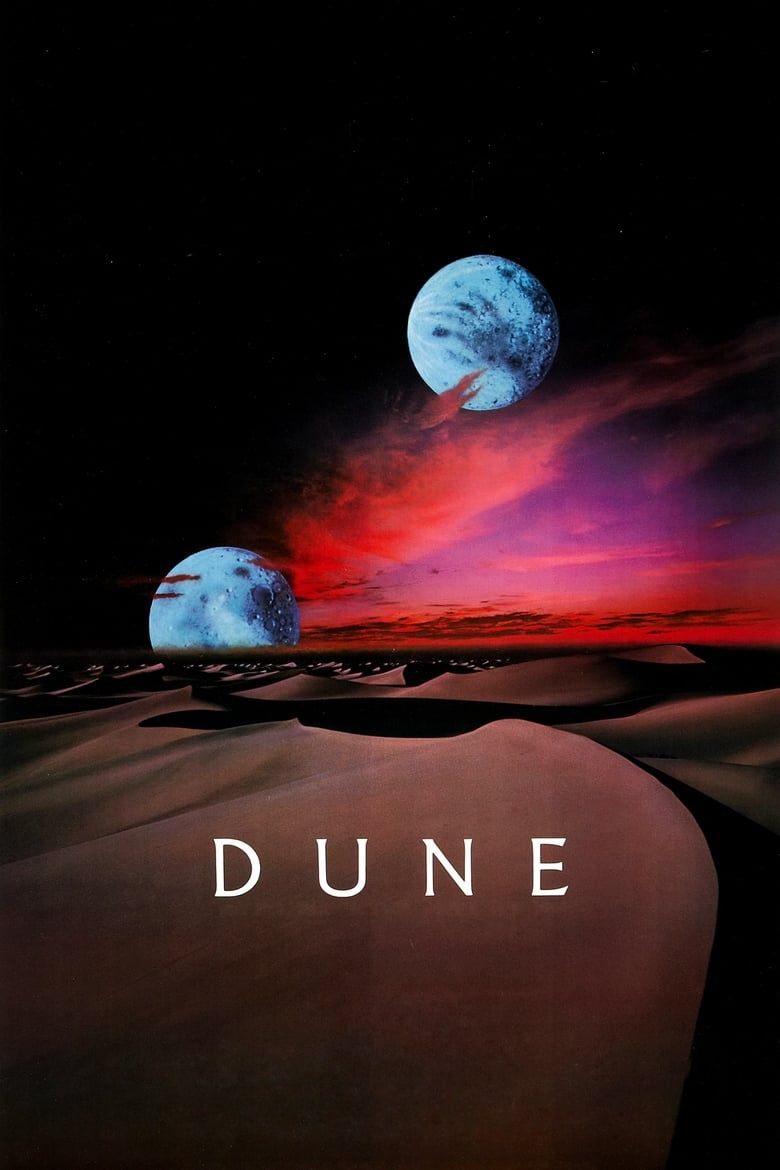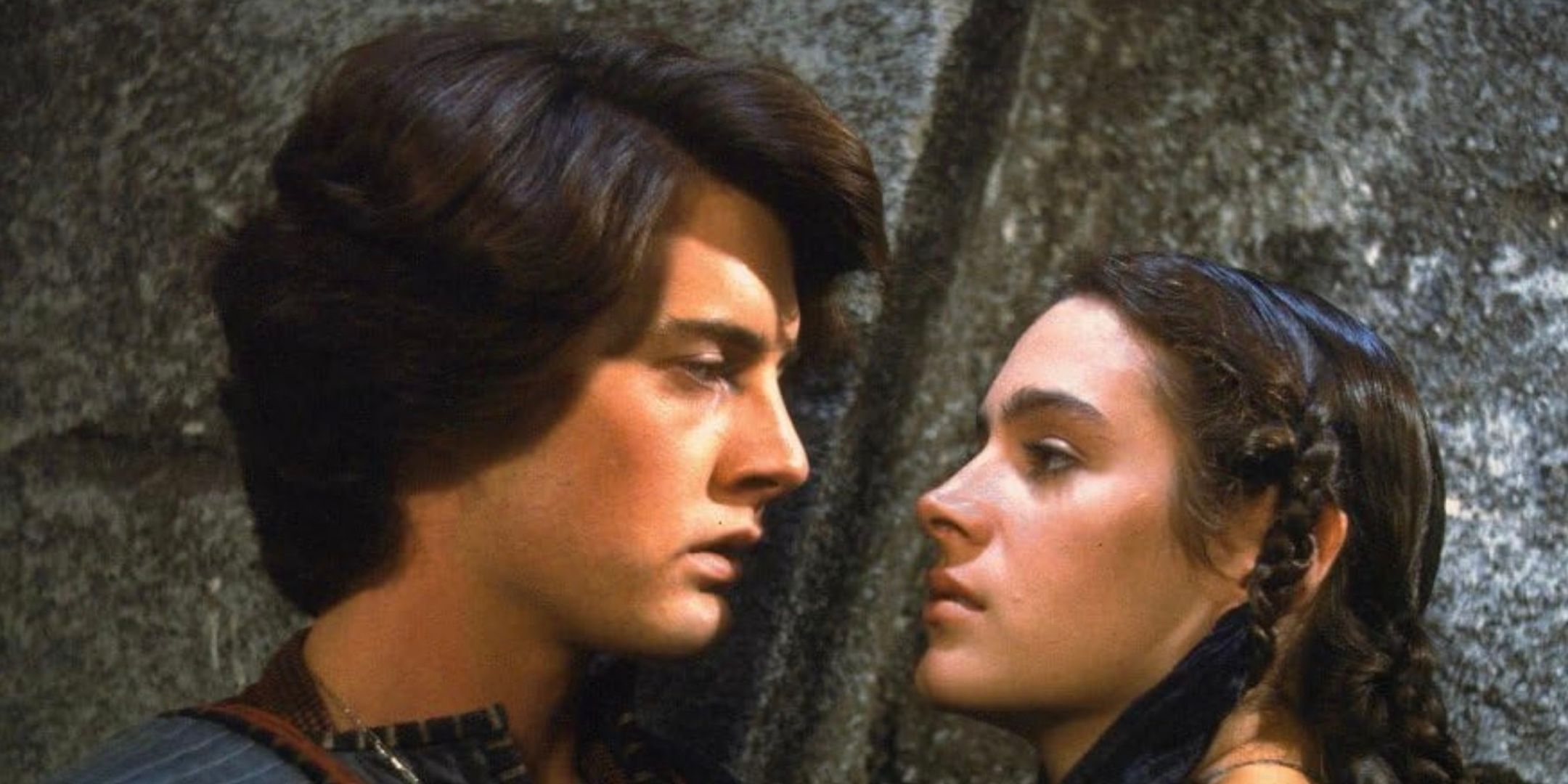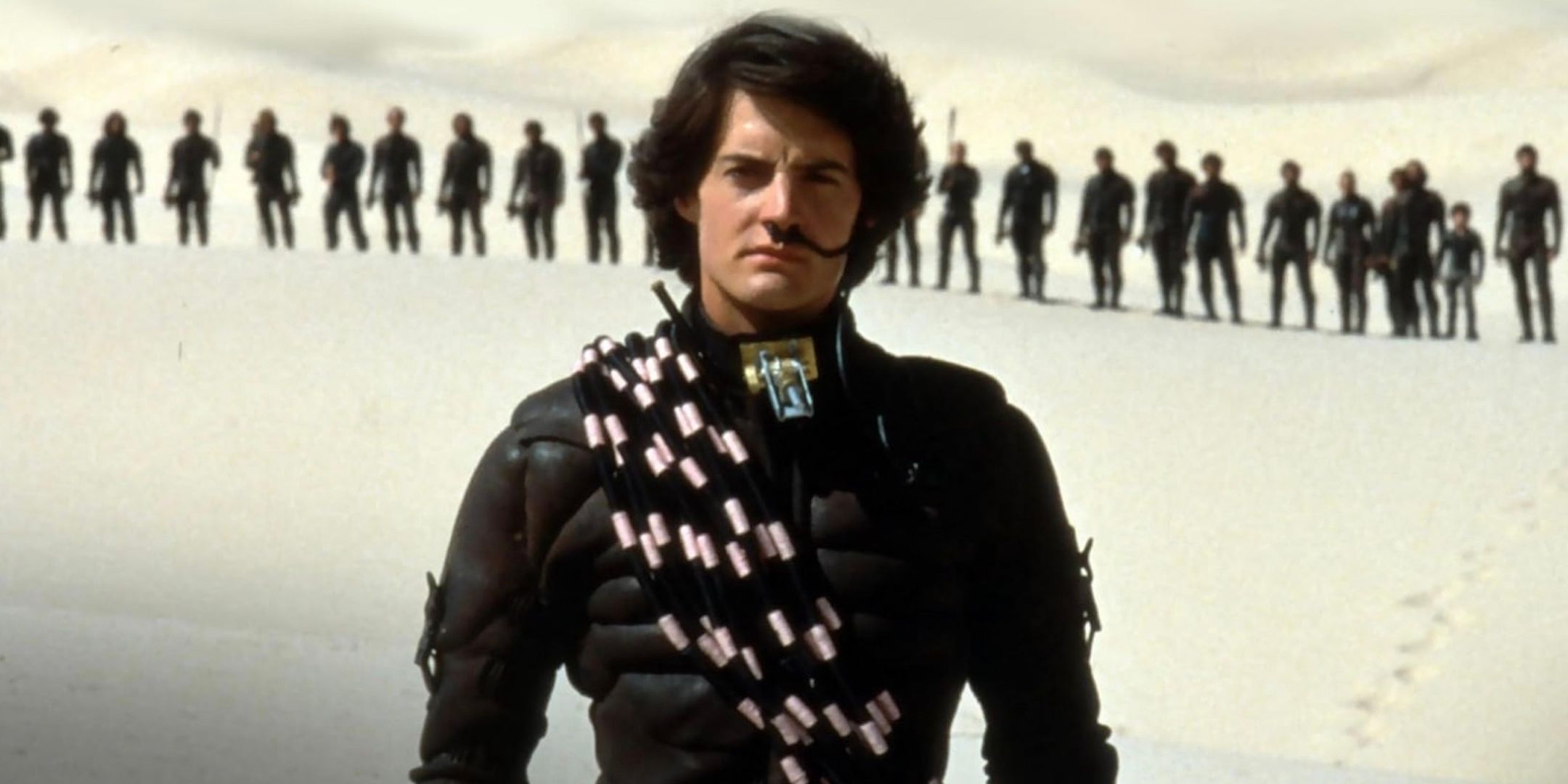Many directors look back at their past failures and attempt to justify the flaws in their work, but David Lynch has gone the other route when reflecting on his 1984 sci-fi film. Lynch’s films have long fascinated critics and audiences, with their surrealist features encouraging conversations and repeated viewings.
Much of Lynch’s work is highly praised, but there’s one project in his filmography that differs terribly from the rest. Following the success of The Elephant Man, Lynch was sought out to direct various sci-fi films whose scales were massive compared to Lynch’s previous work. One of these films was Dune, based on Frank Herbert’s novel.
The decade prior to Lynch being confirmed as the director, there were various attempts to adapt Herbert’s novel for the big screen, each one falling through and indicating just how difficult the task would be. The final product, released in 1984, was poorly received and has continued to be looked down upon, especially following Denis Villeneuve’s acclaimed Dune films.
David Lynch Hated Dune & Thought He Had Started Selling Out
Lynch Agreed To The Film Because Of The Potential He Saw In The Medium
Dune‘s failure is not a subject Lynch had been particularly enthusiastic to speak about. An ideal vehicle for the director’s visionary talents, Lynch saw endless storytelling possibilities in the sci-fi frame Dune provided. Seeing as these visions didn’t work out as he had intended, nor was the final product a hit, it’s not difficult to imagine why Lynch distanced himself from the film.
Still, questions about what went wrong with Dune were often brought to Lynch before his passing. When talking about Dune, Lynch acknowledged that his hopes for what the film could’ve been guided his decision to take it on, even knowing he wouldn’t have complete creative control.
During a Q&A, Lynch admitted, “I knew when I was signing the contract that I was signing away final cut and from that moment I felt like, looking back, I started selling out” (via Far Out Magazine).
The scale of Herbert’s novel is substantial, making it challenging to condense into a single film, but Lynch’s cut of Dune managed to do so with a runtime of nearly three hours. However, Dune‘s distributors expected the film to be cut down to two hours instead, meaning Lynch and Dune‘s producers needed to find ways to remove and re-shoot multiple scenes.
What Went Wrong With David Lynch’s Dune Movie
A Strong, Comprehensive Narrative Was Sacrificed For A Shorter Runtime
The difference between Lynch’s vision and the studio’s expectations of the film is apparent in Dune‘s muddled state. As previously mentioned, it’s a near-impossible task to adapt the entirety of Herbert’s novel into one single film with a reasonable runtime. To abide by the required two-hour runtime expected by distributors and producers, Lynch was forced to make several, ultimately damaging adjustments.
Hoping to push the story forward in the quickest, most effective manner, several new scenes were filmed, and voice-over narration was added as a means to condense as much of the story as possible. Such adjustments to Lynch’s original vision watered down Herbert’s meaningful themes and left behind a busy, confusing narrative.
Unlike Villeneuve’s Dune and Dune: Part Two, where audiences are gradually immersed in the rich culture and conflict on Arrakis, Lynch’s Dune throws audiences into the action with little explanation. Dune moves through its story at an unpleasant, rapid pace that undoubtedly leaves those unfamiliar with Herbert’s work lost.

Related
Dune: 15 Biggest Differences Between The David Lynch & Denis Velleneuve Versions
Denis Villeneuve and David Lynch are known for their styles of directing, so there are big differences between the modern and 1984 versions of Dune.
Along with Herbert’s layered writing, it was to be expected that the author’s fictional world would be brought to life with awe-inspiring set pieces and special effects. However, the special effects available during the ’80s didn’t help salvage Dune, as they were mostly unconvincing and cheap in appearance. Additionally, many of Dune‘s action sequences appear stiff and dull.
Is David Lynch’s Dune Really THAT Bad?
Dune Is Still A Lynch Movie And There’s Plenty For Fans To Enjoy
Dune isn’t one of Lynch’s films that inspires rewatches or enthusiastic conversations dissecting its themes the way his other movies do. While it’s far from his best work, Dune also isn’t as bad as one might expect —though fans of Lynch are likely to appreciate his attempt at Dune more than fans of the original novel are.
Time has certainly been kinder to Dune, as the film offers an enjoyable look at Lynch early on in his career. Lynch’s signature surreal imagery and the visuals that would come to define his skills as a filmmaker are present throughout Dune and are irresistibly dreamy. Additionally, the cheesiness of Dune‘s special effects is amusing and presents audiences with unexpected fun.
Another aspect of Dune that, admittedly, Lynch fans will find greater appreciation for than others is the casting of Kyle MacLachlan as Paul Atreides. Dune is surprisingly one of MacLachlan’s best films. MacLachlan’s performance as Paul isn’t particularly exceptional, but it’s far from the film’s worst offense.
Dune —MacLachlan’s film debut— is the first of many collaborations between MacLachlan and Lynch, the rest of which are widely beloved by Lynch devotees. For better or for worse, Dune is evidently ambitious and packed full of potential. Dune is heavily flawed and has been understandably criticized for decades, but, in hindsight, it’s not an irredeemable disaster either.
Source: Far Out Magazine

Dune
- Release Date
-
December 14, 1984
- Runtime
-
137 minutes




